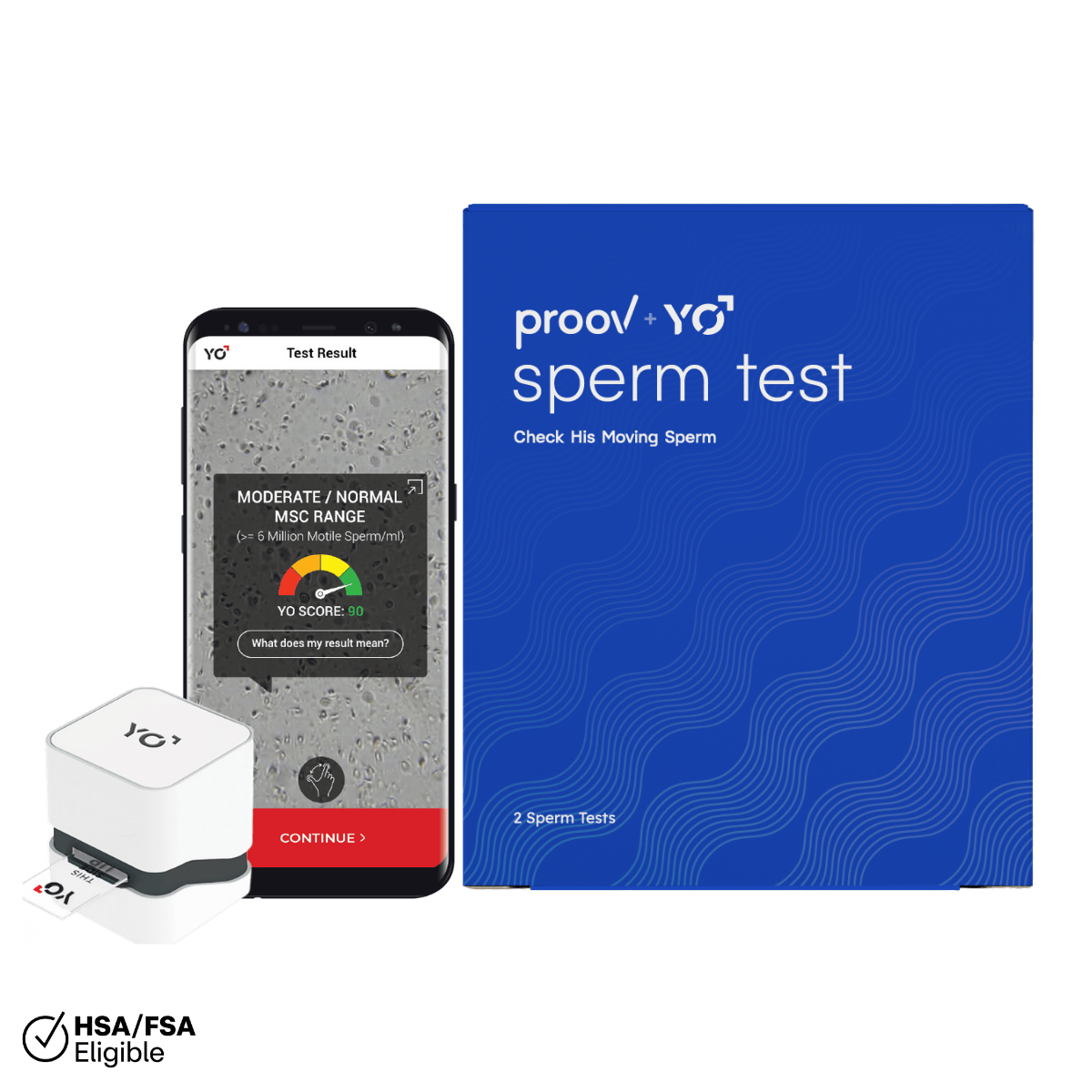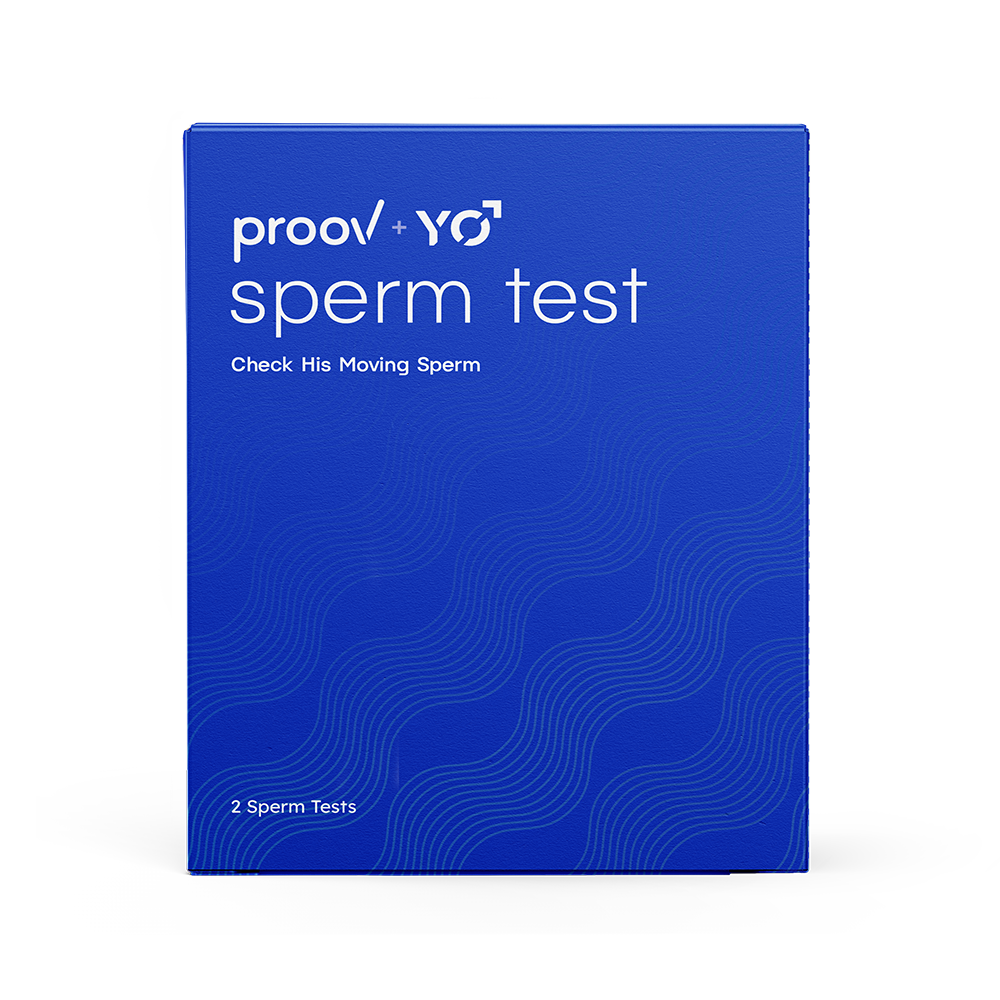Written by: Dr. Amy Beckley, PhD, Founder and Inventor of the Proov test — the first and only FDA-cleared test to confirm successful ovulation at home.
Written on 8/30/21
There are so many hormones in our cycles — sometimes we even have a hard time keeping track! But we believe knowing more about your hormones can help set you up for success, regardless of what your end goal may be.
Traditionally, elevated follicle stimulating hormone (FSH) levels have been a marker of the perimenopausal transition. While this is great information to know as you enter that stage of life, you may not be there yet.
That’s why we want to focus this blog on how high FSH impacts your ability to conceive. Keep reading to learn more!
What is FSH and why is it important?
FSH is exactly what it’s named for: the follicle stimulating hormone. It is a hormone produced in your brain by the pituitary gland and its job is to stimulate your ovaries to recruit, grow, and mature follicles in preparation for ovulation.
FSH plays an essential role in your reproductive health, as it helps regulate your menstrual cycle and is the fuel that makes your eggs grow. If you want to understand why FSH is important, you first should understand your ovarian reserve.
We are born with a set ovarian reserve, meaning we are born with all the eggs we will ever have. Only a small number of these follicles will eventually mature and release an egg during our reproductive life span.
Each cycle begins with a certain number of antral follicles — follicles that have not yet matured —in our ovaries. The number of antral follicles we have in any particular cycle varies depending on our age and the size of our ovarian reserve.
Our brain then sends an FSH signal to the ovaries which causes some of the antral follicles to start maturing. FSH helps these follicles grow until one follicle becomes dominant.
As it starts maturing, the dominant follicle produces estrogen which, in high quantities, suppresses FSH production. By the time the dominant follicle starts producing estrogen, it doesn’t need any more FSH to grow and becomes FSH independent. The other smaller follicles who have not been recruited by the ovary will shrink and disintegrate, since there is no more FSH to support their growth.
Once the follicle and egg are mature enough, estrogen will reach a certain level that signals to your brain it’s time to ovulate. Your brain will then trigger an LH surge and ovulation occurs!
What does high FSH mean?
Our eggs are as old as we are and as we age, our ovarian reserve diminishes. This is a natural process that typically starts around age 35 as we enter the perimenopausal transition and ends around the age of 50 with the arrival of menopause.
When our ovarian reserve is optimal, meaning we have many eggs left, our ovaries have no trouble recruiting a dominant follicle among the antral follicles we begin our cycle with. Because of this, they don’t need as much FSH to “fuel” the growth of the follicles.
But as we get older and we have fewer eggs, our ovaries may struggle to recruit a dominant follicle and will send a signal to the brain, asking for more help. The brain, in return, produces more FSH.
We test FSH at the beginning of the cycle around the time follicles are being recruited to see exactly how much FSH our body needs in order to make eggs grow. If the levels of FSH are low during this time, then your ovarian reserve is likely good and your ovaries are functioning optimally.
If, on the other hand, your levels are high around the time follicles are being recruited, this could be a sign of one of two things, depending on your age. If you are in your late 30s or 40s, high FSH may be a sign of Diminished Ovarian Reserve (DOR), which at this point in your life is totally normal and nothing to worry about.
However, if you are in your early 30s or younger, high FSH could be a sign of Primary Ovarian Insufficiency (POI), which occurs when your ovaries stop working properly before your 40s. POI can, but does not always, affect chances of conception.
Note that POI is different from premature menopause. In premature menopause, you can no longer get pregnant because you are no longer ovulating. With POI, you still may be able to conceive and may even still get an occasional period.
What are the normal FSH ranges?
It’s important to note that “normal” FSH levels depend on your age and how close you are to perimenopause. A normal level for a 40-year-old is definitely suboptimal for someone in their early 20s.
So, what is a normal FSH level to get pregnant? For someone who is trying to conceive, below are rough guidelines for FSH levels. Remember that FSH guidelines may vary lab to lab or doctor to doctor. If you have concerns about your FSH levels, we recommend consulting your doctor.
- <10 mUI/ml: FSH levels are considered optimal, as long as estrogen levels are also in the FSH normal range (under 80 pg/ml in blood). High estrogen levels falsely lower FSH levels. A normal FSH level in conjunction with a normal estrogen level indicates normal ovarian function and may predict a good response to a medicated cycle, if that applies to you.
- 10-15 mUI/ml: FSH levels are a bit elevated. Response to medicated cycles may be impacted but more and more clinics have begun to accept patients with levels in this range.
- 15-25 mUI/ml: FSH levels are elevated and this could be a sign your ovaries are struggling to grow an egg each cycle. At this point you may be experiencing perimenopausal symptoms, even though you are still menstruating and ovulating. As long as you are ovulating, it is still possible to conceive.
- >25 mUI/ml: FSH levels are high. Constant levels above this threshold mean your ovaries are no longer functioning properly and you may be approaching menopause. It is important to know that menopause can only be diagnosed after 12 months without a period, plus a set of hormonal tests indicating your ovaries have stopped functioning. If you are no longer ovulating, you cannot get pregnant.

It’s important to note that “normal” FSH levels depend on your age and how close you are to perimenopause.
Can I get pregnant with high FSH?
The short answer is yes, studies show it is possible to get pregnant with high FSH levels. So if you're wondering, "does high fsh mean infertility?" As long as you still have a period and ovulate, even if it is one single ovulation per year, you can conceive.
However, it’s important to note that while pregnancy with high FSH is possible, it can be more difficult to conceive. This is because with low ovarian reserve and older age comes diminished egg quality.
Additionally, high FSH tends to shorten the follicular phase and causes early ovulation. This means that unless we are aware of our cycles and track them, it could be easy to miss the fertile window. But overall, it is yet to be established if high FSH levels impact natural fertility.
What studies have shown, however, is that high FSH low AMH (anti-mullerian hormone) levels are predictive of a woman’s response to medicated cycles. Many clinics have cutoffs when it comes to accepting high FSH patients for in-vitro fertilization (IVF) cycles, as response to medications could be unsatisfactory and would result in a failed cycle.
How do I test my FSH levels?
While FSH levels are traditionally measured in a lab, you can now test your levels non-invasively, at-home with Proov FSH tests. With Proov FSH test, you can measure levels on cycle days 5, 7, and 9 to get a better idea of your ovarian reserve.
Additionally, when used alongside the Proov Insight app (available on iPhone and Android), you’ll also receive all-month tracking, numeric FSH levels, info on what what they mean, and a personalized action plan!
While getting pregnant with high FSH is entirely possible, knowing where you stand before trying to conceive can help you make a better plan and get pregnant faster.













